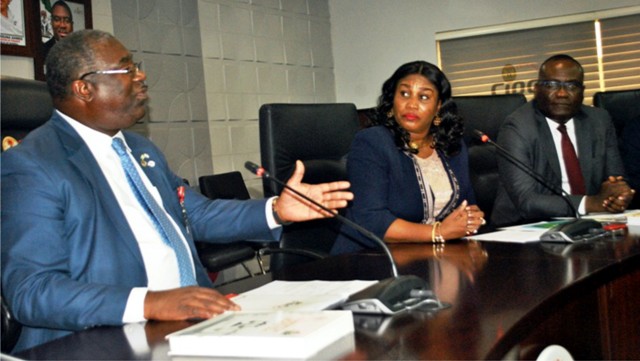Business
Nigeria’s Foreign Reserves Drop By $1.64bn

Nigeria’s foreign exchange reserves continued its downward trend as it dropped by $1.64bn from $38.34 billion on January 15, 2020 to $36.69 billion on February 20, latest figures from the Central Bank of Nigeria(CBN) has revealed.
The apex bank disclosed that the reserves stood at $38.53 billion on January 2, 2020.
According to the figures, the reserves dropped from $39.8 billion on November 11, 2019 to $39.24 billion on December 13, after falling by $1.26 billion from $41.76 billion on October 2 to $40.5bn as of the end of October.
The reserves dropped by $482.18m from N45.14 billion as of July 8 to $44.65 billion on August 8.
The CBN Governor, Mr Godwin Emefiele, said recently that Nigeria’s overdependence on crude oil for over 60 per cent of fiscal revenue and over 90 per cent of forex inflows meant that shocks in the oil market were transmitted entirely to the economy via the forex markets as manufacturers and traders who required forex for input purchases were faced with dwindling supplies.
He said, “Average monthly inflows of forex into the CBN fell from over $3.4 billion in June 2014 to a low of $1.4 billion in September 2016. The decline in forex earnings was further complicated by the foreign capital flow reversals due to rising yields in the USA. The impact on our economy was evident in the rising pressure on the naira-dollar exchange rate.
“With the drop in forex inflows, the exchange rate at the parallel market rose from about N200/$ in August 2015 to N525/$ in February 2017. Inflation also rose from 9.6 per cent in January 2016 to over 18.7 per cent in January 2017.
“Our external reserves fell from about $31billion in April 2015 to $23 billion in October 2016, and activities in the industrial sector witnessed a lull as manufacturers struggled to get access to key inputs needed in the production process.”
He said the CBN introduced a demand management approach in order to conserve the country’s reserves and support domestic production of certain goods in Nigeria.
Emefiele said the impact of a tighter monetary policy regime, attractive yields in the money market, and the bank’s efforts at supporting domestic production in the agriculture and manufacturing sectors, along with improvements in oil production, had supported continued forex inflows into the Nigerian market.
He stated, “In the import and export window, over $60 billion worth of transactions have taken place since the inception of the window in April 2017, and our foreign exchange reserves are above $40 billion as at October 2019, relative to its low point of $23 billion in October 2016.
“We have been able to build our reserves in the midst of lower oil prices, as strong reserves aid the confidence of domestic and external investors. Today, our current stock of external reserves is able to finance 12 months of current import commitments.”
Business
Two Federal Agencies Enter Pack On Expansion, Sustainable Electricity In Niger Delta

Business
Why The AI Boom May Extend The Reign Of Natural Gas

Business
Ogun To Join Oil-Producing States ……..As NNPCL Kicks Off Commercial Oil Production At Eba

-

 Sports5 days ago
Sports5 days ago2026 WC: Nigeria, DR Congo Awaits FIFA Verdict Today
-
Politics5 days ago
ADC, PDP, LP Missing As INEC Set For By- Elections In Rivers
-

 Environment5 days ago
Environment5 days agoOxfam, partners celebrate 5 years of climate governance programmes in Nigeria
-
Politics5 days ago
FG’s Economic Policies Not Working – APC Chieftain
-

 News4 days ago
News4 days agoVictory Over Insurgency Certain, Tinubu Assures
-

 Politics5 days ago
Politics5 days ago2027: Diri Unveils RHA LG Coordinators, APC Congress Panel
-

 Politics5 days ago
Politics5 days agoReps To Meet,’Morrow Over INEC’s 2027 Election Timetable
-

 Politics5 days ago
Politics5 days agoGroup Continues Push For Real Time Election Results Transmission

